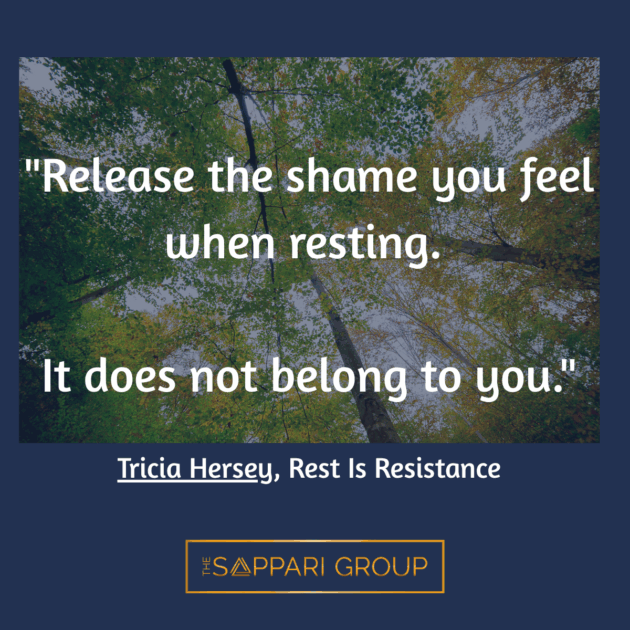The evidence regarding sleep is clear: it’s one of the main drivers of well-being. Yet for perimenopause women seeking better sleep in midlife, quality rest often feels impossibly out of reach.

The Undeniable Power of Sleep
Matthew Walker, PhD, in his book Why We Sleep, shares a thought experiment that brings the power of sleep into sharp focus. He describes a fictitious advertisement for a revolutionary treatment that makes you live longer, enhances memory and creativity, makes you more attractive, keeps you slim, protects you from cancer and dementia, wards off illness, and reduces your risk of heart disease and diabetes—all while making you happier and less anxious.
While it might sound hyperbolic, Walker notes that nothing about these claims would be inaccurate. If this were a drug, many would be disbelieving, yet those convinced would pay enormous sums for even the smallest dose.
Of course, this isn’t describing a miracle drug at all—it’s describing the proven benefits of a full night of sleep. The evidence supporting these benefits has been documented in more than 17,000 well-scrutinized scientific reports. The prescription cost? Free. Yet we often shun the nightly invitations to receive our full dose of this natural remedy—with serious consequences.
Most of us don’t realize how remarkable a remedy sleep truly is.
Why Women Face a Double Challenge
Research shows that even one hour of lost sleep can have measurable impacts on our health and performance. Studies on daylight saving time consistently demonstrate increased rates of heart attacks, car accidents, and workplace injuries on the Monday following the spring time change when we lose just one hour.
But for women, solving sleep problems can be doubly difficult. So much of why we don’t sleep well is seemingly beyond our control.
The Unique Burden on Women
Sleep disruptions punctuate different life stages for women: pregnancy, infants, housework, parenting. Even without these external demands, hormones can wreak havoc on sleep, causing us to want to sleep more, not at all, or struggle with falling or staying asleep.
Then comes midlife and perimenopause. Up to 50% of women report sleep problems during midlife, with hormonal fluctuations, hot flashes, night sweats, and physical symptoms creating the perfect storm for sleeplessness. Research from the Study of Women’s Health Across the Nation (SWAN) shows that vasomotor symptoms affect up to 80% of women during the menopausal transition, with a median duration of 7.4 years—though symptoms can persist for more than 10 years in some women.
The statistics are sobering: 37.6% of perimenopausal women experience insomnia—the highest prevalence across all menopausal stages. Women who develop insomnia in the approach to menopause have a measurable sleep deficit, with almost 50% getting less than six hours of sleep per night.
Sleep Hygiene: Necessary But Not Sufficient
Having good sleep hygiene is helpful but not always enough. You’ve likely heard the standard recommendations:
- Stop eating at least 2 hours before bed
- Avoid digital devices 1-3 hours before bed
- Keep your bedroom at 65°F
- Sleep in complete darkness
- Eliminate noise disturbances
- Develop a wind-down routine that doesn’t overstimulate your mind
- Exercise early in the day
- Get early morning sunlight exposure
These practices matter. They create the foundation for good sleep. But when you’re doing all the right things and sleep remains elusive—as it can during perimenopause and menopause—what then?
When Sleep Hygiene Isn’t Enough
For me, I had to address the root cause: night sweats and hot flashes that were waking me every hour. A hormone supplement made the difference, though it took about two months to take effect. Once I finally stopped waking constantly, many of my other symptoms also subsided—the brain fog cleared, emotional dysregulation calmed down. Because of that improvement, I could finally focus on work again and move my goals forward.
For each person, the solution is different. But if you’ve addressed your sleep hygiene and still struggle with sleep, it makes sense to look at other factors—particularly hormone levels for women in midlife.
The Cardiovascular Connection
The stakes are high. Recent research presented at the American Heart Association’s Scientific Sessions found that women who are peri- and postmenopausal who experience a range of sleep disturbances scored significantly worse on key measures of cardiovascular health than their premenopausal peers. Women with poor sleep quality were three times more likely to have poor overall cardiovascular health scores.
Longitudinal studies tracking women over 22 years through the SWAN research demonstrate that chronic poor sleep exposure over decades of midlife is directly related to cardiovascular disease risk—and cardiovascular disease remains the leading cause of death in women.
Breaking the Cycle of Self-Blame
Unfortunately, I hear too many women beating themselves up for conditions they cannot change. If this is you, please know: you’re not failing. Your body is navigating significant physiological changes.
Here are practical strategies when perfect sleep isn’t possible:
1. Embrace Non-Contiguous Sleep
While a solid 8 hours of sleep is ideal, it’s not always possible. Your sleep doesn’t have to be contiguous to be beneficial. Research increasingly shows that the quality and total amount of sleep matter more than whether it happens all at once.
2. Practice Yoga Nidra for Deep Rest
If you feel tired and haven’t gotten enough quality sleep, rest intentionally. Use guided meditation practices like Yoga Nidra—also called “yogic sleep”—to help calm your mind and body and give yourself the deepest rest possible in the time you have.
Yoga Nidra is a form of guided meditation practiced while lying down that creates a state of consciousness between waking and sleeping. Research shows that even a short 11-minute Yoga Nidra practice can significantly reduce stress, improve sleep quality, and enhance well-being. Studies on athletes found improvements in sleep latency and sleep efficiency after just four weeks of practice.
Clinical studies demonstrate that Yoga Nidra produces measurable physiological changes, including improvements in hormonal status, reduced anxiety and depression, changes in brain dopamine release, and improved cerebral blood flow. One study found that it can be particularly effective for managing chronic insomnia, with the added benefit that after initial supervised sessions, patients can practice independently at home.
Resources for Yoga Nidra and Meditation:
- Kelly Boys (female-founded) – Mindfulness trainer specializing in NSDR/Yoga Nidra with free sessions on YouTube and courses on Mindfulness.com
- Women’s Meditation Network – Founded by Katie Krimitsos, offering the “Sleep Meditation for Women” podcast with guided practices
- Be #Visionary Movement – Community offering 100+ custom meditations, weekly strategic meditation classes, and business networking for mindful professionals (skool.com/bevisionarymovement)
- Insight Timer app (free guided sessions)
- YouTube (search “Yoga Nidra for sleep”)
- Huberman Lab’s Non-Sleep Deep Rest protocols (10, 20, and 30-minute options)
3. Avoid Sleep Disruptors
Stay away from sleep pills or alcohol—these can be more disruptive than helpful. While they might help you fall asleep initially, they interfere with sleep architecture and prevent you from reaching the deeper, restorative stages of sleep your body needs.
4. Practice Self-Compassion
Be kind to yourself. It is immensely frustrating to struggle with sleep, but shaming yourself over this problem is counterproductive. Create a space where you can rest and use that space to give yourself downtime whether sleep comes or not.
As Tricia Hersey writes in Rest Is Resistance: “We must believe we are worthy of rest. We don’t have to earn it. It is our birthright. It is one of our most ancient and primal needs.”
She continues: “Release the shame you feel when resting. It does not belong to you… Treating each other and ourselves with care isn’t a luxury, but an absolute necessity if we’re going to thrive. Resting isn’t an afterthought, but a basic part of being human.”
Rest as Resistance
In a culture that equates productivity with worth, rest becomes a radical act. For women navigating the biological realities of hormonal changes while also managing caregiving responsibilities, professional demands, and societal expectations, giving yourself permission to rest is both necessary and revolutionary.
Hersey reminds us: “You were not just born to center your entire existence on work and labor. You were born to heal, to grow, to be of service to yourself and community, to practice, to experiment, to create, to have space, to dream, and to connect.”
Additional Resources for Better Sleep
Beyond the basics of sleep hygiene and restorative practices, consider these evidence-based approaches:
Medical Consultation: If you’re experiencing persistent sleep problems during perimenopause or menopause, consult with a healthcare provider. Options might include:
- Hormone replacement therapy (when appropriate)
- Cognitive Behavioral Therapy for Insomnia (CBT-I)—considered the first-line treatment for chronic insomnia
- Evaluation for sleep disorders like sleep apnea (which increases during menopause)
Books and Resources:
- Why We Sleep by Matthew Walker, PhD
- Rest Is Resistance by Tricia Hersey
- Burnout by Emily and Amelia Nagoski (explores the complete cycle of stress and recovery for women)
- The SWAN Study website (swanstudy.org) for research-based information on midlife women’s health
Female-Founded Podcasts and Resources:
- Fempower Health – Hosted by Georgie Kovacs, evidence-based conversations about women’s health
- The Female Health Solution Podcast – Dr. Beth Westie provides cutting-edge information for women’s health
- Sleep Meditation for Women – Katie Krimitsos and the Women’s Meditation Network
- You Are Not Broken – Dr. Kelly Casperson, urologist and women’s health expert
- Kelly Boys Yoga Nidra – Specialized NSDR and Yoga Nidra practices (kellyboys.org and YouTube)
Healthcare Providers to Consider:
- Dr. Sudha Kumar, MD – Board-certified physician specializing in Functional and Integrative Medicine with focus on Bioidentical Hormone Replacement Therapy (BHRT) for women’s health (wholistichealthmd.com)
- Functional medicine practitioners who can evaluate hormonal health comprehensively
- Sleep specialists for evaluation of sleep disorders
- Midi Health—a virtual care clinic focused on women navigating perimenopause and menopause
Apps and Tools:
- Insight Timer (guided meditations and Yoga Nidra)
- Waking Up by Sam Harris (includes NSDR protocols)
- Huberman Lab resources (free science-based sleep protocols)
Join the Conversation: CommuniTEA on Sleep for Women
You’re invited! Join us for our next CommuniTEA Conversation on Tuesday, October 21 at 7:00 PM ET where we’ll dive deeper into Sleep for Women. This is your chance to connect with other women navigating similar challenges, share what’s working (and what’s not), and learn from each other’s experiences in a supportive, judgment-free space.
We’ll discuss:
- Practical strategies for better sleep during perimenopause and menopause
- What to do when sleep hygiene isn’t enough
- How to advocate for yourself with healthcare providers
- Real stories from real women finding their way to rest
Access this conversation by joining the Momentum Community for Women: https://momentum-accountability-productivity.mn.co/
You don’t have to navigate sleep struggles alone. Come share your story, ask your questions, and be part of a community that understands.
Your Turn: What Works for You?
Every woman’s sleep journey is unique. What strategies have you found helpful? What barriers have you overcome? Your experience might illuminate the path for another woman struggling in the darkness of sleepless nights.
Remember: You are not alone in this. Fifty percent of midlife women report sleep problems—you’re part of a vast sisterhood facing these challenges. And unlike our mothers and grandmothers, we have growing research, expanding treatment options, and increasing awareness that these struggles are real, valid, and worthy of attention.
Sleep isn’t a luxury. It’s not something you have to earn. It’s a biological necessity and a human right. When you advocate for your sleep health, you’re not being selfish—you’re honoring the wisdom of your body and ensuring you have the energy, clarity, and vitality to show up fully for everything and everyone you care about, including yourself.
If you’re struggling with sleep and it’s impacting your daily life, don’t dismiss it as “just part of being this age.” See a healthcare professional or sleep specialist to identify the problem. Many sleep issues can be prevented or improved, and there are solutions that can reduce health risks and improve quality of life. You deserve rest. You deserve support. You deserve to thrive.
References
- Walker, M. (2017). Why We Sleep: Unlocking the Power of Sleep and Dreams. Scribner.
- Kravitz, H. M., Ganz, P. A., Bromberger, J., Powell, L. H., Sutton-Tyrrell, K., & Meyer, P. M. (2003). Sleep difficulty in women at midlife: A community survey of sleep and the menopausal transition. Menopause, 10(1), 19-28.
- Thurston, R. C., et al. (2024). Trajectories of Sleep Over Midlife and Incident Cardiovascular Disease Events in the Study of Women’s Health Across the Nation. Circulation, 149(17), 1330-1345. https://www.ahajournals.org/doi/10.1161/CIRCULATIONAHA.123.066491
- Study of Women’s Health Across the Nation (SWAN). (2024). Effects of Sleep Problems During Menopause. Retrieved from https://www.swanstudy.org/womens-health-info/effects-of-sleep-problems-during-menopause/
- Shaver, J. L., & Woods, N. F. (2015). Sleep and menopause: A narrative review. Menopause, 22(8), 899-915.
- Mohammadi, F., Amiri, F. N., Tadayon, M., & Khademloo, M. (2023). Global prevalence of sleep disorders during menopause: A meta-analysis. BMC Women’s Health, 23, 133. https://pmc.ncbi.nlm.nih.gov/articles/PMC9996569/
- de Zambotti, M., Cellini, N., Menghini, L., Sarlo, M., & Baker, F. C. (2016). Insomnia in women approaching menopause: Beyond perception. Psychophysiology, 53(6), 822-830. https://pmc.ncbi.nlm.nih.gov/articles/PMC4542146/
- Kravitz, H. M., Joffe, H., & Buysse, D. J. (2011). Sleep during the perimenopause: A SWAN story. Obstetrics and Gynecology Clinics of North America, 38(3), 567-586. https://pmc.ncbi.nlm.nih.gov/articles/PMC3185248/
- Ferracioli-Oda, E., Qawasmi, A., & Bloch, M. H. (2013). Meta-analysis: Melatonin for the treatment of primary sleep disorders. PLoS ONE, 8(5), e63773.
- Hersey, T. (2022). Rest Is Resistance: A Manifesto. Little, Brown Spark.
- Pandi-Perumal, S. R., Spence, D. W., Srivastava, N., et al. (2022). The Origin and Clinical Relevance of Yoga Nidra. Sleep and Vigilance, 6(1), 61-84. https://pmc.ncbi.nlm.nih.gov/articles/PMC9033521/
- Moszeik, E. N., von Oertzen, T., & Renner, K. H. (2020). Effectiveness of a short Yoga Nidra meditation on stress, sleep, and well-being in a large and diverse sample. Current Psychology, 41, 5272-5286. https://link.springer.com/article/10.1007/s12144-020-01042-2
- Datta, K., Tripathi, M., & Mallick, H. N. (2017). Yoga Nidra: An innovative approach for management of chronic insomnia—A case report. Sleep Science and Practice, 1, 7. https://sleep.biomedcentral.com/articles/10.1186/s41606-017-0009-4
- Aggarwal, B., et al. (2023). Sleep problems linked to heart health risks during and after menopause. Presented at American Heart Association’s Scientific Sessions. https://www.heart.org/en/news/2023/12/04/sleep-problems-linked-to-heart-health-risks-during-and-after-menopause
- National Sleep Foundation. (2024). How Can Menopause Affect Sleep? https://www.sleepfoundation.org/women-sleep/menopause-and-sleep
- Huberman Lab. (2024). Non-Sleep Deep Rest (NSDR). Retrieved from https://www.hubermanlab.com/nsdr
- Boys, K. (2024). The Blind Spot Effect: How to Stop Missing What’s Right in Front of You. North Atlantic Books.
- Be #Visionary Movement. (2024). Community for mindful professionals. Retrieved from https://www.skool.com/bevisionarymovement/about
- Kumar, S. (2024). Wholistic Health MD: Functional and Integrative Medicine. Retrieved from https://wholistichealthmd.com/


